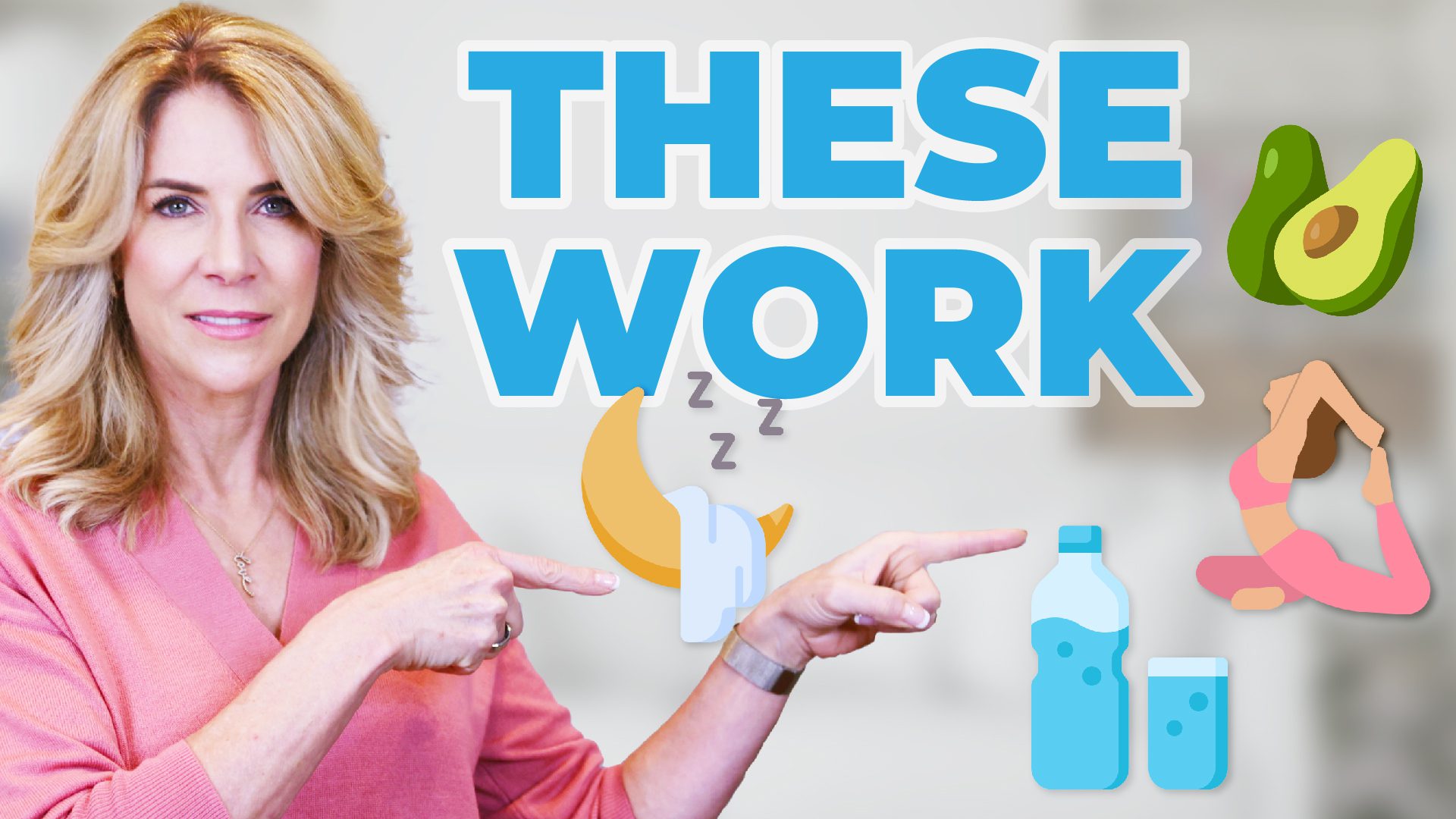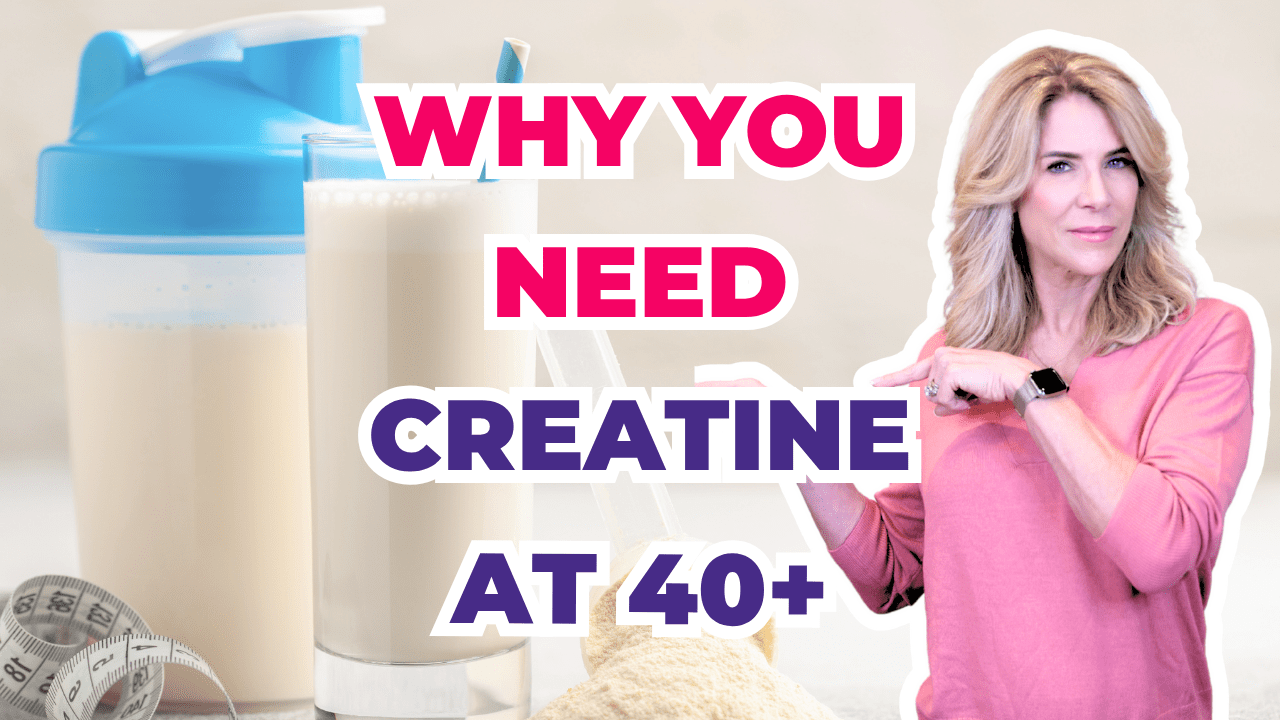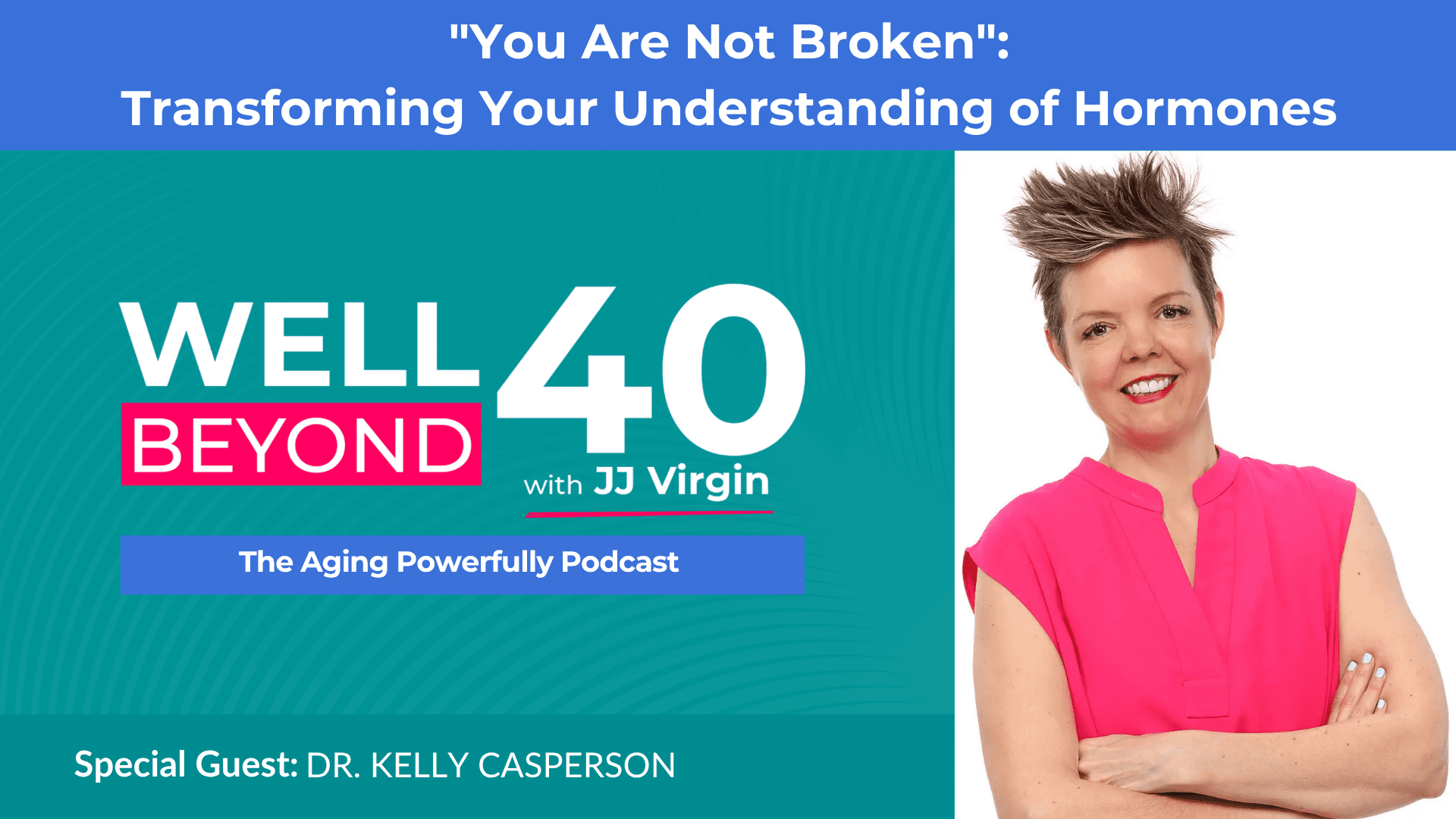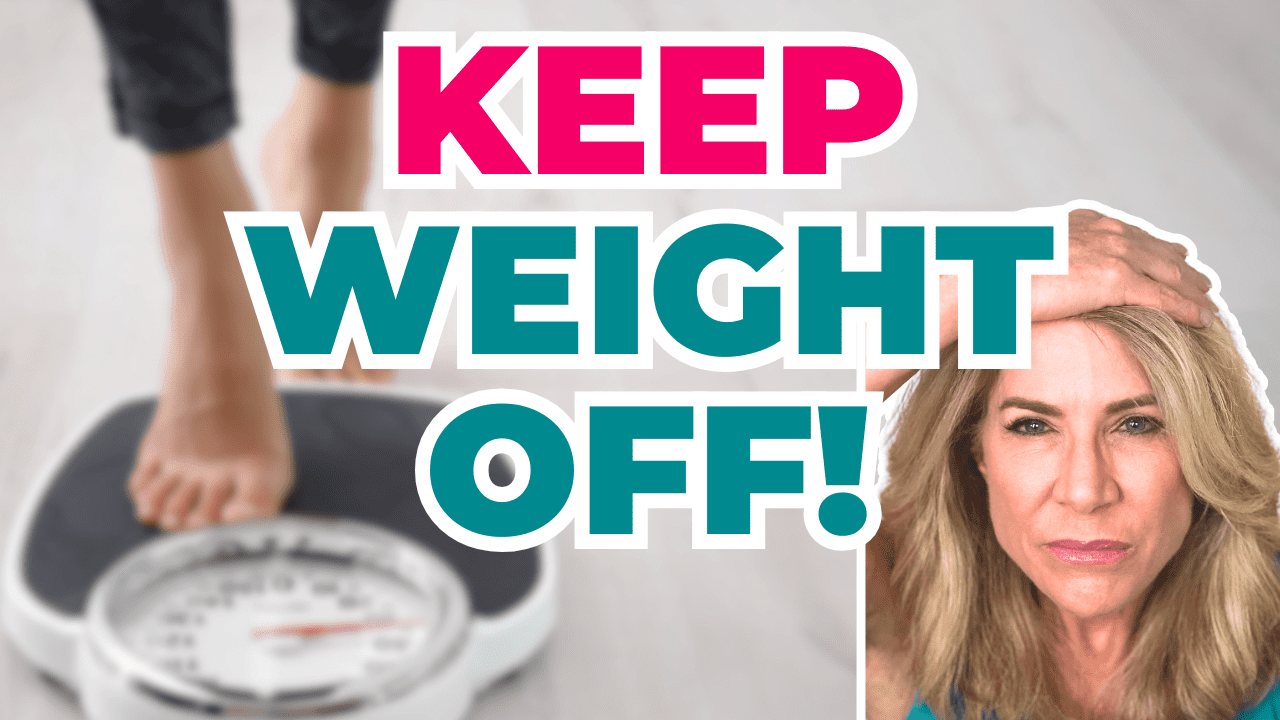Stop Overcomplicating It & Start Making Progress
I have one crucial message for you as we head into 2024…
Burning fat is easier than you think. I promise.
In this episode, I’m giving you six truly simple daily habits that you can implement right away to help change your body composition and feel more powerful than ever. Plus, I’m revealing the biggest enemy to dropping fat you’re probably overlooking. Let’s get to it!
Timestamps
00:01:01 – You’re making things more complicated than they should be
00:03:34 – What you can do to help burn body fat
00:05:00 – This is the biggest enemy to dropping fat
00:07:31 – At the very least, you want to do this
00:10:03 – Changing this one thing in your diet can make a big difference
00:12:55 – Even if you’re exercising and eating right, not doing this sets you up for obesity
Resources Mentioned in this episode
Watch the FULL VIDEO on my YouTube Channel
Read my book, Sugar Impact Diet
Learn how foods cause leaky gut in The Virgin Diet
Oxiline Pro bioimpedance scale
Get my FREE Resistance Training Cheat Sheet
Reignite Wellness™ All-In-One Shakes
Get wild-caught fish and seafood from Vital Choice
Track your protein & macros with Cronometer App
Study: Nutrition Reviews: Is self-reported short sleep duration associated with obesity? A systematic review and meta-analysis of cohort studies
Video: 8 Fat Loss Myths You Should Never Fall For (Esp Over 40!)
ATHE_Transcript_Ep 618_Try These Simple Daily Habits to Guarantee Fat Loss in 2024
JJ Virgin: [00:00:00] I’m JJ Virgin, PhD dropout, sorry mom, turned four time New York Times best selling author. Yes, I’m a certified nutrition specialist, fitness hall of famer, and I speak at health conferences and trainings around the globe, but I’m driven by my insatiable curiosity and love of science to keep asking questions, digging for answers, and sharing the information I uncover with as many people as I can, and that’s why I created the Well Beyond 40 podcast. To synthesize and simplify the science of health into actionable strategies to help you thrive.
In each episode, we’ll talk about what’s working in the world of wellness, from personalized nutrition and healing your metabolism to healthy aging and prescriptive fitness. Join me on the journey to better health so you can love how you look and feel right now and have the energy to play full out at 100.[00:01:00]
Year after year, and you probably tried a major diet and lifestyle overhaul only to see your plans fall short of your high expectations. And you’re back where you started. Guess what? You’re making it too complicated. The simple things are often the ones that make the biggest impact. It’s the little hinges that swing the big doors.
This year, we’re going to shift your perspective and you’ll see it’s the everyday, uncomplicated habits that can make all the difference in your fat loss journey. First of all, in order to lose fat, you need to be able to track it and ensure you’re actually losing fat while holding on to or building muscle.
So how do you do that? In my perfect world, the first thing you would do, and you would do this every six months, is you’d go get a DEXA body scan. These now are all over the place. Just put it into Google, local DEXA, probably cost about 75 to 100 bucks. What it’s going to tell you, it used to be that we did this for bone density, Now, it tells you bone [00:02:00] density, but also tells you skeletal muscle and body fat and specifically visceral adipose tissue, the intra organal fat, which is the one that’s really problematic.
Then you’re going to come home and you will get a bio impedance scale for home. My favorite is something called an Oxaline Pro. It’s about a hundred bucks. You can get a Renpho for about 20 bucks. The most important thing, these are not going to be accurate like the DEXA. But you are tracking trends over time.
So that’s what you’re using it for. And you’re also going to get a tape measure so that you can measure your waist and compare your waist and your hips and your waist to your height. Those are the things we want to look at. You’re going to look at a couple things here that you’re monitoring. And what I want you to do, and the reason you’re not just doing a DEXA every six months and calling it a day, the reason you’re weighing in every day is you’re taking a trend over time.
to look at your total body water, your body fat, your skeletal muscle, and your visceral adipose tissue. So every week we’re looking at the average from [00:03:00] the week, right, because your weight’s going to fluctuate, and we’re going to look at a weekly tape measure for your waist. What we’re looking for here is holding on to our building skeletal muscle as you’re dropping body fat.
And remember, the closer you get to your body fat goal, the slower this is going to go. Otherwise, you try to do this fast, you’re going to end up losing skeletal muscle. And if you’re losing skeletal muscle, I always say, if you’re losing weight without losing your waist, you’re making yourself worse, not better.
So we want to make sure what we’re doing here is that we are holding on to or building muscle while we’re dropping fat. Okay. With that. Let’s dive into what you can do to help burn that body fat. And I’m going to take you back to last year. I guess it was two years ago. During the pandemic, I finally bit the bullet and started to do meditation.
And I started going to Dr. Joe Dispenza’s retreats. And I remember the first retreat, week long, 35 hours of [00:04:00] meditation. Good thing I didn’t know that going in. And everyone around me is having these tremendous experiences and I’m sitting there having a like mental battle with myself. And I realized at the time that this was like taking your nervous system to the gym and I wouldn’t go to the gym for a week and expect to be like fit.
That’s crazy. So I changed my expectations here too. I decided to go all in for six months. And over the next six months, I made sure that I was meditating every day. And I also went back to two more Dr. Joe retreats. When I go in, I go all in. But here’s what was crazy about it. I sat down to dinner with Dr.
Joe about six months in. I go, you know, it’s wild here. I haven’t changed anything else. The only variable that changed was adding in meditation. Now, this wasn’t me doing meditation by doing HIIT training. This was me sitting, right? Doing meditation. And I dropped five pounds. Now, I knew the reason behind it, but it’s still wild to see how this can happen because what does stress do?[00:05:00]
Well, gosh, if you’re looking to drop body fat and specifically belly fat, the biggest enemy to dropping fat besides eating too many calories is cortisol. Because cortisol is going to do a couple different things, specifically you have a bunch of receptors around your belly. So, We know that cortisol tends to make you lay down more belly fat, especially visceral adipose tissue.
But one of the other things that it does is it raises blood sugar. In fact, for years, I always had a higher fasting blood sugar level, despite like great diet, exercise, everything else. But I always had a fasting blood sugar that would roll around 90 like, what the heck? But it was always stress. And we know that stress, chronic stress can increase blood sugar, which is going to increase your fasting insulin too.
And we also know that elevated insulin and elevated cortisol is like the one two punch for fat soaring, right? The other big challenge with cortisol is that it’s catabolic. And when you’re trying to build muscle, [00:06:00] you’re trying to be anabolic. If you build muscle, you’re going to have a better metabolism, you’re going to be more insulin sensitive, you’re going to be better at burning fat.
So we want to be able to shift from catabolic to anabolic, right? Also, we know that if you’ve got elevated stress, you’re going to lower your hormones, and especially that hormone testosterone, also thyroid, and both of those, of course, can impact burning fat. So what do we need to do here? Meditate, or breath work, or tapping.
This is up to you to find your bliss, whatever that could be for you that helps you just bring it down. And one of the ways that you can monitor to see if that’s actually working for you is by tracking your HRV. I noticed when I was at Dr. Joe’s actual events for a week, my HRV was crazy, the highest it’s ever been.
Get back into regular life. It’s like, foomp, it plummets. So I’m using HRV now to really help me, but one of the things I do every single day is wake up, put my eye mask [00:07:00] on, turn on Dr. Joe and meditate. So look at what you can incorporate into your life. And I’ll tell you, you’re probably thinking right now, if you’re not doing this, I don’t have time.
And what I will tell you is this is going to make you much more efficient and effective at every single thing you do besides the fat burning benefit. So that’s the first one. The next one is flat out activity. Okay. And we’re just going to walk through this and the different things, because depending on where you’re at, you’ll go, Oh, I need to add that one.
At the very least, the first thing you want to do is just move more. Now, one thing that can really help here is if you can walk. After at least one of your meals, major difference because it’s going to improve digestion and lower the blood sugar response to the meal. So that’s one that’s totally helpful.
But again, just like I’m tracking HRV, you can track how much you’re upright, right? You want to stand instead of sit, you want to walk instead of stand. And so start tracking your overall [00:08:00] activity, your daily living, and just improve that. That’s the step one. If you find that you’re getting 5, 000 steps in a day.
Go to 6, 000, go to 7, 000, go to 8, 000. That’s the step one. The next one is to add in some resistance training, because when you add in resistance training that pushes your body to do more than it’s used to, so it has to adapt by building skeletal muscle. Your muscle is metabolic spanks. It’s going to hold everything in tighter while supporting a better metabolism.
Remember, it takes a lot of energy for your body to go through muscle protein turnover and build that muscle. Muscle is also a sugar sponge. It gives carbohydrates a place to land that’s not on your belly, right? It’s going to land into your muscles and that’s where you want to be. And then the final one is to do high intensity interval training.
Now, I love this for cardio training because it’s going to help raise gross hormone, it’s going to [00:09:00] do it with less oxidative stress, it’s not going to impact lowering my immune system, and it’s done quickly so I can get a full blown cardio workout. In 20 to 30 minutes, that also is helping my sympathetic nervous system, like, learn how to manage stress better.
It’s going to calm things down. So I’m going to go all out, recover, all out and recover. That would be like going out for a walk and then throwing in a sprint for 30 seconds, walk it off, sprint for 30 seconds, walk it off, right? So high intensity interval training, next thing in there. So overall, move more.
And then that’s your hierarchy. First, start looking at all the different ways you can just increase how much you’re moving throughout the day. And every single thing counts from fidgeting to standing to taking the stairs. Then add in that resistance training two to four times a week. Then add in HIIT training.
Next one, eat protein first. Now, if all you did in your diet, and I am a [00:10:00] big, big, big fan of tracking here. If all you did in your diet was add in the right amount of protein for you, and how do you know that? Go to jjvirgin.com/7day, use the number 7. That’s my seven day eat protein first challenge, but there’s a calculator in there to help you figure out how much protein you need.
If all you did was change over some of what you’re eating in terms of carbs or fat, preferably carb, and put in protein instead, just that alone, keeping calories the same, if you were eating the amount of calories that kept your weight stable, likely you’ll lose a little fat right there just because protein’s more thermic than carbs or fat are.
Takes about 25 percent of those calories to go through the process of digestion, assimilation, etc. But likely, you’ll end up eating less calories. And again, we want to get into a calorie deficit here to help your body burn fat for fuel. And by eating protein, we make sure that we’re holding on to the muscle while we’re doing that.
Now, The [00:11:00] reason you’ll likely get into a calorie deficit without even having to focus on it yet is because you are super satiated by protein. It is the most satiating of the macronutrients. I especially love when I can do like a, you know, eat some protein, like some wild salmon. So I get protein, a little bit of healthy fat.
And then eat a bunch of non starchy vegetables with it. And I’ve got some fiber and I call that the satiety trifecta there. But again, if all we started to do was focus on getting optimal amounts of protein, kick out a little bit of the other, and then we can start to look at going into a calorie deficit, that’s going to help you hold onto muscle while you’re losing fat, which brings me to what you have to do in order to do that.
You’ve got to be weighing and tracking your food. In fact, I would say if you’re looking to drop fat, this is really the first place to start. It has been said that we tend to underestimate what we eat by anywhere from 25 to 40%, which is insane. And so [00:12:00] when you get back into tracking, and this doesn’t mean you have to do this forever, but it’s just to get so super clear on what, say, six ounces of wild salmon looks like.
What Half a cup of wild rice looks like what a tablespoon of extra virgin olive oil looks like so that you can really make sure that you’re getting what you need, but not overdoing it. Because remember too much healthy food is unhealthy. Oh, and one more thing about the food diary. The cool thing is if you see something going on, like all of a sudden you step on the scale, we’ve all done that, and you’re like, why is my weight up three pounds overnight?
You can go back and go, did I eat something my body’s intolerant to? Did I create a low grade inflammatory response? Did I get a big hit of sodium in there? You know, what the heck was going on that made me hold on to that extra weight? You know, next one, sleep. There was an interesting study. I believe I’ve got to look this up, but I believe it was out of WashU, but it showed that failure to get the seven to nine hours of sleep that we need each [00:13:00] night, quality sleep, right?
Even if you’re eating right, even if you’re exercising, you are set up for obesity. Why is that? Sleep, of course, we know is where we repair. But sleep is mission critical for Insulin sensitivity. In fact, just one poor night of sleep, you wake up the next day, you are more insulin resistant. That means your body has to push out more insulin to get your blood sugar lowered and store nutrients.
And if your insulin is chronically elevated, it is really hard to use stored fat for fuel. You tend to be hungrier. And we also know that one poor night of sleep, you’re hungrier the next day. Your hunger hormones are also elevated. And so think about it now, you’re not as good at burning fat. And your hunger hormones are elevated.
That’s a recipe for disaster. Besides the fact you’re more tired, you tend to reach for things that are more sugary, more quick sets of energy. You’re not going to want to work out as hard. It’s a whole snowball going downhill and not downhill the way you want it to go. So [00:14:00] sleep is super duper important.
Again, what I like to do with all of these things, I’m big on tracking. For that one, I like the Oura Ring. And you start to really connect the dots between what is impacting your sleep. You might find, you know, I tell people to stop eating three to four hours before bed, very least two hours, but ideally it’s really more like three to four hours before bed.
I remember one night I ended up eating late. Wake up the next morning, sleep was horrible. My aura ring said, looks like you ate late last night. So you can see these things in your ring and then you can start to go, okay, I’m not doing that bad habit because look what happens when I do. All right, so let’s recap on all this.
You’re going to weigh and measure, you’re going to meditate, you’re going to move more, you’re going to eat protein first, you’re going to keep a food diary, and you’re going to get quality sleep. Now, if you don’t believe that this can be this simple, you should watch this next video where I debunk eight myths about fat loss.
That may be keeping you stuck. Be sure to join me [00:15:00] next time for more tools, tips, and techniques you can incorporate into everyday life to ensure you look and feel great. And more importantly, that you’re built to last and check me out on Instagram, Facebook, YouTube, and my website, jjvirgin.com and make sure to follow my podcast.
So you don’t miss a single episode at subscribetojj.com. See you next time.
Hide Transcript

 Subscribe to our show
Subscribe to our show 




